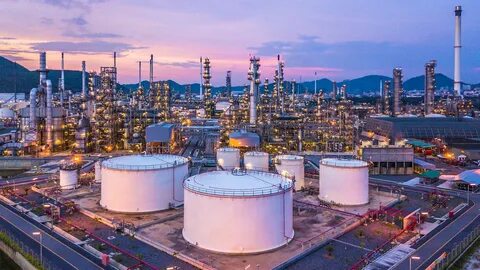Certificate in Financial Management for Oil and Gas and Petrochemical Industries
Course Overview
The Certificate in Financial Management for Oil and Gas and Petrochemical Industries by KE Leaders equips professionals with the specialized financial knowledge needed to navigate the complexities of the oil, gas, and petrochemical sectors. This course focuses on industry-specific financial practices, including cost management, project evaluation, risk analysis, and compliance with global standards such as IFRS. Participants will gain insights into financial strategies that drive profitability and long-term sustainability in this volatile industry.
Learning Outcomes
By the end of this course, participants will be able to:
- Develop cost-effective financial strategies tailored to the oil, gas, and petrochemical industries.
- Evaluate capital-intensive projects using advanced financial modeling techniques.
- Mitigate financial risks in a volatile commodities market.
- Understand global accounting standards, including IFRS, and their application in the industry.
- Analyze financial performance and optimize investment portfolios.
Course Objectives
Participants will:
- Gain in-depth knowledge of financial principles and practices unique to the energy sector.
- Master budgeting and forecasting for upstream, midstream, and downstream operations.
- Develop skills to manage the financial aspects of capital projects.
- Understand financial reporting and compliance requirements specific to the industry.
- Learn strategies for risk management and economic evaluation.
Course Structure
Day 1: Financial Fundamentals for Oil and Gas
- Topics Covered:
- Overview of the Oil and Gas Financial Ecosystem
- Financial Roles in Upstream, Midstream, and Downstream Operations
- Revenue Streams and Cost Structures
- Case Study: Financial Dynamics in Oil and Gas
- Learning Outcomes:
- Understand the financial framework of the industry.
- Differentiate between various operational cost structures.
Day 2: Cost Management and Budgeting
- Topics Covered:
- Cost Drivers in the Oil and Gas Sector
- Budgeting Techniques for Exploration and Production (E&P)
- Asset Optimization for Cost Efficiency
- Case Study: Budgeting Challenges in Capital-Intensive Projects
- Learning Outcomes:
- Prepare realistic budgets for E&P activities.
- Identify and control key cost drivers.
Day 3: Financial Risk Management
- Topics Covered:
- Risks in Commodity Pricing and Market Volatility
- Hedging Strategies and Financial Instruments
- Developing Contingency Plans for Financial Stability
- Case Study: Managing Price Volatility in Oil Markets
- Learning Outcomes:
- Implement strategies to mitigate financial risks.
- Utilize financial instruments to stabilize revenues.
Day 4: Financial Reporting and Compliance
- Topics Covered:
- IFRS Standards in Oil, Gas, and Petrochemicals
- Understanding Revenue Recognition and Asset Valuation
- Compliance with Regulatory Frameworks
- Case Study: Best Practices in Financial Reporting
- Learning Outcomes:
- Prepare financial reports adhering to IFRS.
- Ensure compliance with international and local regulations.
Day 5: Project Evaluation and Investment Strategies
- Topics Covered:
- Capital Budgeting and Project Financing
- Net Present Value (NPV), Internal Rate of Return (IRR), and Payback Period
- Evaluating Investment Opportunities in Petrochemicals
- Case Study: Decision-Making in Large-Scale Projects
- Learning Outcomes:
- Evaluate the financial viability of projects.
- Develop investment strategies aligned with organizational goals.
Training Methodology
This course incorporates:
- Interactive Lectures: Delivered by industry experts with hands-on experience.
- Real-World Case Studies: Providing practical insights into the financial challenges of the sector.
- Workshops: Focused on applying theoretical concepts to real scenarios.
- Group Discussions: Encouraging peer learning and collaborative problem-solving.
Who Should Attend?
This course is ideal for:
- Financial analysts and accountants in the oil, gas, and petrochemical industries.
- Project managers overseeing large-scale energy projects.
- Executives involved in budgeting, financial reporting, or investment decisions.
- Risk management professionals seeking to understand commodity market dynamics.
- Anyone looking to specialize in financial management for the energy sector.
Certification
Participants who complete the course will earn the Certificate in Financial Management for Oil and Gas and Petrochemical Industries from KE Leaders. This certification demonstrates expertise in managing the unique financial challenges of the industry.
Take Control of Financial Success in Energy
Gain the knowledge and skills to lead in financial management within the oil, gas, and petrochemical sectors.
👉 Enroll now with KE Leaders and advance your career in energy finance today!






